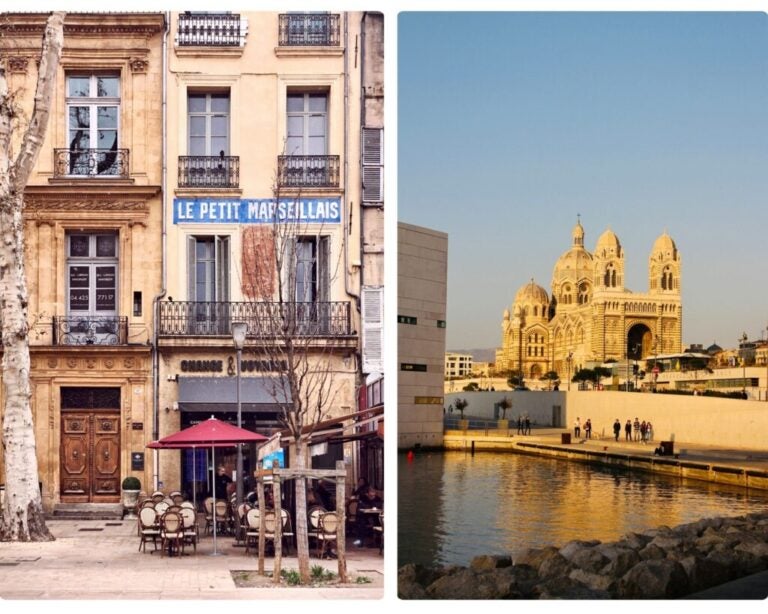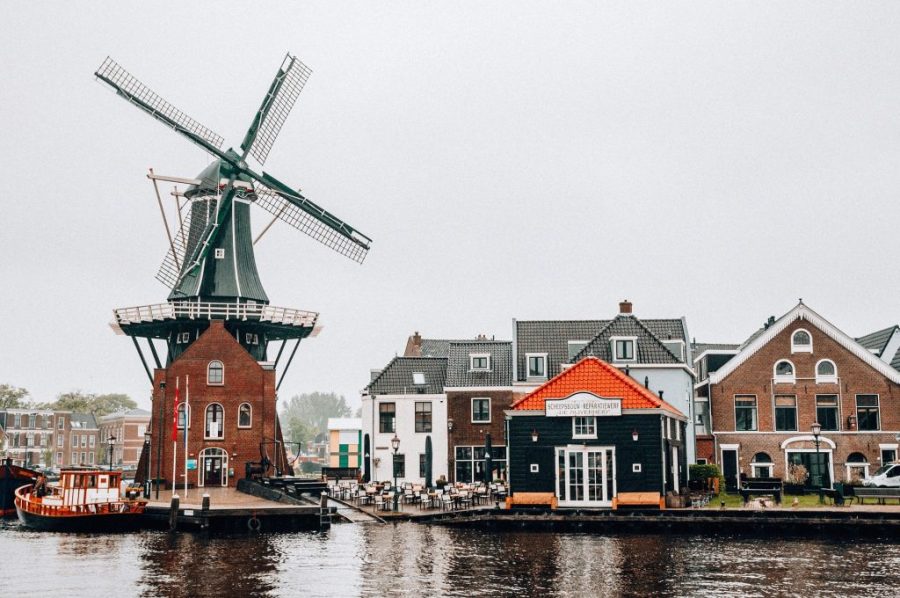French student visa: How to get it?
Find everything about the French student visa — essential requirements, costs, how to apply, and much more.
In this article, you’ll find information on how to apply for a student visa in France. This country offers attractive options for international students seeking quality education, recognised worldwide. France is known for its prestigious universities, offering programmes in both French and English. Moreover, the cost of living is reasonable compared to other European destinations.
We’ll guide you through the available visa options in France, their essential requirements, how to apply, and how to take the first step towards your academic goals in this destination. We’ll also explain where you can find specialised help to feel more secure during your process as an international student. We recommend subscribing to our plans to maintain your connectivity while studying abroad.
When do you need a visa to study in France?
Anyone wishing to study in France for more than three months, regardless of nationality, must have a valid student visa. Student visas are required for university studies, language courses, exchange programmes, academic internships, and other educational programmes. The need for a visa depends on several factors, such as the course duration, academic level, and your nationality.
Duration of studies:
- Less than three months: If you plan to attend a short course or a short exchange programme, you may be eligible for a Schengen short-stay visa.
- More than three months: For university programmes, master’s degrees, or doctorates, you’ll need a specific long-stay visa for students.
Specific programmes requiring a visa:
- Bachelor’s or master’s studies: Any university course at recognised institutions.
- Language programmes: Intensive French courses or long-term language studies.
- International mobility: Exchange programmes organised by universities, such as Erasmus+.
- Academic internships: Activities that are part of your home university’s curriculum.
Types of student visas for France
France offers several student visa options depending on the duration and type of educational programme. Here are the most common:
Schengen short-stay visa (Temporary student visa) in France
This visa is for people planning to study in France for less than 90 days. It’s ideal for those attending short courses, summer programmes, or conferences. Some of its key features include:
- Duration: Up to 90 days.
- Restrictions: It doesn’t allow you to work during your stay.
- Application: It’s straightforward and quicker compared to other visas.
- Eligibility: It’s for students from outside the European Union planning to take short courses.
Long-stay student visa (VLS-TS) in France
This visa is for those wishing to study in France for more than three months. It’s the most common for international students looking to complete a bachelor’s, master’s, doctorate, or long-term language courses. Some of its features include:
- Duration: Usually valid for one year, with the possibility of renewal.
- Additional permits: It allows you to work up to 964 hours a year (equivalent to part-time).
- Benefits: It facilitates enrolment in long-term academic programmes and provides access to social services like health insurance.
- Eligibility: Students enrolled in institutions recognised by the French government.
Benefits of student visas for France
Obtaining a student visa in France allows you to access quality educational programmes and also enjoy a wide range of benefits:
- Right to work: With the long-stay visa (VLS-TS), you can work up to 20 hours per week while studying, helping you cover your living expenses.
- Access to medical services: International students have the right to enrol in the French healthcare system, known for its efficiency and low cost.
- Mobility within Europe: France is part of the Schengen Area, so you can travel freely to other European countries during your stay.
- Scholarships and aid: Many international students are eligible for academic scholarships or financial aid offered by the French government and other organisations.
- Family benefits: Some visas allow your partner or children to join you with specific permits for residence and, in some cases, work in France.
Benefits of the Schengen short-stay visa in France: What’s it for?
The Schengen short-stay visa, also known as the “temporary student visa”, offers several benefits that make it an attractive option for those wanting to study short-term in France. Some of its main advantages are:
- Access to short programmes: Ideal for enrolling in summer courses, workshops, or exchange programmes up to 90 days.
- Mobility within the Schengen Area: It allows you to travel to other countries in the region without needing additional visas.
- Lower costs: Since this visa is for short stays, the total cost of the process is usually lower compared to long-stay visas.
- Simpler procedures: It requires less documentation and processing time is shorter.
- Flexibility in academic goals: In addition to courses, you can attend conferences or educational events without further restrictions.
Benefits of the long-stay student visa (VLS-TS): What does it allow you to do in France?
The long-stay student visa is the best option for those planning to reside in France for a prolonged period. It offers a wide range of benefits designed to ensure that international students can focus on their academic goals:
- Right to work: It allows students to work up to 964 hours a year, which is equivalent to about 20 hours per week.
- Access to healthcare: By enrolling in the French social security system, you can benefit from quality medical care at a reduced cost.
- Mobility within Europe: As a Schengen long-stay visa, you can travel freely to other European countries for tourism or academic activities.
- Easy renewal: If your educational programme extends beyond the first year, you can renew your visa without major complications.
- Family benefits: In some cases, you can request permits for direct family members to join you during your stay in France.
- Access to scholarships: This visa allows you to apply for various financial aid and scholarships offered by French and European institutions.
Requirements you need to meet for each type of visa in France
Each type of visa has specific requirements that you must meet to be eligible. Below are the main conditions for obtaining the Schengen short-stay visa and the long-stay student visa (VLS-TS):

Requirements for eligibility for the Schengen short-stay visa in France
- Course duration: It must be less than 90 days.
- Acceptance letter: An official letter from the educational institution or programme you will attend.
- Proof of financial means: Demonstrate that you have enough funds to cover your stay (at least €65 ($70) per day).
- Health insurance: A travel insurance with minimum coverage of €30,000 ($32,500) including medical assistance and repatriation.
- Purpose of visit: Provide clear evidence of the academic purpose of your trip.
Requirements for applying for the long-stay student visa (VLS-TS)
- Enrolment in an educational programme: You must be enrolled at an institution recognised by the Ministry of Education in France.
- Proof of accommodation: Proof that you have a place to stay during your stay.
- Financial means: You must show proof of at least €615 ($660) per month during your studies.
- Health insurance: Although France provides access to the healthcare system, it is mandatory to have initial health insurance coverage.
- Language proficiency: In some cases, you must prove your level of French or English, depending on the language of the programme.
- Campus France certification: For some countries, it’s mandatory to go through Campus France’s validation before applying for the visa.
How to apply for a student visa in France?
The process of applying for any of the student visas for France requires you to follow a series of organised steps. Here’s how to do it:
Documents you need to submit for the Schengen short-stay visa
- Completed application form: Download it from the official French consulate website in your country.
- Valid passport: It should have at least two blank pages and be valid for at least three months beyond your planned departure date from the Schengen Area.
- Recent photographs: Usually, two passport-sized photographs with a white background are required.
- Acceptance letter: Issued by the institution where you will be taking the course or programme.
- Travel itinerary: Includes round-trip tickets and a list of key dates.
- Proof of funds: Bank statements, sponsorship letters, or other evidence of financial means.
- Health insurance: Coverage of at least €30,000 ($32,500) during your stay.
Documents you need to submit for the long-stay student visa (VLS-TS)
- Completed application form: Specific for the long-stay visa, available on the official France visa website.
- Valid passport: With at least two blank pages and a validity exceeding the duration of the visa requested.
- Recent photographs: Two passport-sized photographs with a white background and biometric features.
- Proof of enrolment: An official acceptance letter from the university or educational institution.
- Proof of financial means: Bank statements, scholarship letters, or documents proving a minimum income of €615 ($660) per month.
- Proof of accommodation: Lease contract, accommodation letter, or reservation at a university residence.
- Health insurance: Initial coverage until you register with the French healthcare system.
- Campus France certification: If applying from a country requiring this validation.
Additional steps for both student visas in France
- Schedule an appointment: Once you have all the documents ready, schedule an appointment at the French consulate or embassy in your country.
- Interview: Be prepared for a brief interview where you’ll be asked about your study plans and reasons for choosing France.
- Payment of fees: Make sure to pay the visa fee (typically between €50 ($55) and €99 ($108), depending on the type).
Both visas offer an accessible route to study in France, a destination combining academic excellence with an unforgettable cultural experience. With the documents in order and following these steps, you’ll be ready to start your educational journey in one of the world’s most attractive countries.
Interviews and questions when processing the student visa in France
As part of the process for obtaining a visa to study in France, it’s common for applicants to undergo an interview at the French consulate or embassy in their country. During this interview, the authorities aim to assess the authenticity of the application and the purpose of the trip.
What to expect during the interview?
- Duration: Typically, interviews last between 10 and 20 minutes.
- Documentation: It’s important to bring all required documents in physical form, as consular staff may ask to review them in detail.
Common questions in the interview
- About your studies:
- Why did you choose France as your destination?
- What educational programme did you enrol in?
- What are your plans after completing your studies?
- How do you plan to finance your studies and stay?
- Do you have a sponsor?
- Where do you plan to live while studying?
- Do you have a lease agreement or confirmation of residence?
- Do you plan to stay in France after your studies?
- How will this programme benefit your professional career?
It’s crucial to respond clearly, coherently, and honestly, as your answers significantly influence the final decision.

Where to submit the student visa application for France?
The process for applying for a student visa in France can be done through different channels. Here are the main options:
1. Online platform
The French government has implemented an online system to simplify the visa application. Through the official France-Visas portal, you can:
- Complete the application form.
- Upload digitised documents.
- Check the list of specific requirements for your country.
- Schedule an appointment at the consulate.
2. Visa application centres
In some countries, applications are processed through authorised centres such as TLScontact or VFS Global. These centres offer services like:
- Preliminary document review.
- Biometric data scanning.
- Personalised assistance with the process.
3. Consulates and embassies
If you prefer a direct approach, you can visit the French consulate or embassy in your country. Here, you can:
- Attend the interview.
- Submit original documents.
- Clarify specific doubts about your application.
It’s advisable to verify the specific channel for your region in advance, as options may vary depending on your country of residence.
Important: If you are a frequent traveler and want to stay connected without worrying about expensive roaming or looking for a new SIM at every destination, Holafly’s subscription plans are for you. With a single eSIM, enjoy internet in more than 170 countries for a fixed price and no surprises on your bill. Travel without limits and connect easily and securely! 🚀🌍

How much does a student visa for Colombia cost?
The costs associated with applying for a student visa for France include different components:
- Application fee
- Short-stay visa: €80 ($86).
- Long-stay visa: €99 ($106).
- Translations and certifications:
Some required documents must be translated into French and legalized, which can cost between €20 and €50 ($22–$54) per document. - Health insurance
- Initial insurance: From €30 to €150 ($32–$162), depending on the duration of the coverage.
- Registration in the French healthcare system: Around €217 ($235) per year.
- Processing fees at external centres:
- TLScontact or VFS Global: They usually charge an additional administrative fee of €30 to €40 ($32–$43).
In total, the initial costs can range between €200 and €400 ($216–$432), depending on the specifics of your case.
How long does it take to obtain a student visa for French?
The waiting time to obtain a student visa may vary depending on several factors, such as the time of year, demand in your region, and the complexity of your application.
- Document preparation: Between one and two weeks, depending on how quickly you gather the requirements.
- Application process:
- Short-stay visa: 15 to 20 working days.
- Long-stay visa: 4 to 6 weeks.
It is advisable to start the process at least three months before the planned start date of your studies.
Lawyers for advice on student visa procedures for France
For those who prefer more specialized guidance, there are law firms and consulting companies that can make the process easier.
1. Fragomen
- Services: Comprehensive advice on document preparation, application submission, and process follow-up.
- Location: Offices in Paris and multiple other cities.
- Contact: www.fragomen.com
- Costs: Personalized services starting from €500 ($540).
2. LegalPlace
- Services: Online guidance and visa application preparation.
- Contact: legalplace.fr
- Costs: Packages starting from €150 ($162).
Frequently asked questions about student visas for France
It is recommended to start the process three months in advance, especially for long-stay visas.
Yes, the long-stay visa (VLS-TS) is renewable as long as you remain enrolled in an educational program.
Yes, you can work up to 20 hours per week during the academic period and full-time during holidays.
Not directly, but after completing certain studies or working in France with a valid permit, you may qualify for other types of residence.
It depends on the programme educational. If it’s in French, a minimum language level will be required; for programs in English, this requirement does not apply.
You can appeal the decision before the French authorities or correct any mistakes in your application and submit it again.





 Language
Language 


















 No results found
No results found







